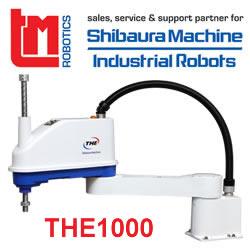The DARPA Robotics Challenge Continues June 2015 in Southern California
U.S., International teams to compete for $2M prize, June 5-6, 2015, in Pomona, California
From June 5-6, 2015, California will be the stage for the DARPA Robotics Challenge (DRC) Finals. Teams from around the world will meet at Fairplex in Pomona to compete for the $2 million prize to be awarded to the team that best demonstrates human-supervised robot technology for disaster response.
The DRC is a competition of human-robot systems developed to help emergency personnel respond to natural and man-made disasters. Participating teams from some of the most advanced robotics research and development organizations in the world are designing hardware, software, sensors, and human-machine control interfaces to be tested in a series of tasks selected by DARPA for their broad relevance to disaster response operations.
"Six months ago at the DRC Trials, we began physically testing human-supervised robots against disaster-relevant tasks. Their impressive performance gave us the confidence to raise the bar," said Dr. Gill Pratt, DRC program manager. "A year from now at the DRC Finals we will push the technology even further."
While the tasks at the DRC Finals will be similar to the Trials, a number of new elements will challenge the teams systems:
*Robots will not be connected to power cords, fall arrestors, or wired communications tethers;
*Humans will not be allowed to physically intervene if a robot falls or get stuck—robots that fall will have to do so without breaking and will have to get up without assistance;
*Speed will be more heavily weighted in the scoring, and all tasks must be completed in a total time of approximately one hour (versus four hours in the DRC Trials);
*Communications will be further degraded and intermittent.
Completing the tasks in the time allotted will require innovations on several fronts, including in the human-robot interfaces teams use to control their robots.
"For the first time, teams will be empowered to exploit cloud and crowd-augmented robotics, two highly promising research areas that allow onsite operators to leverage remote data, computing, and human resources," said Pratt. "These research areas are in their infancy, but after the DRC Finals we hope to see significant innovation."
A number of teams were declared finalists at the DRC Trials based on points scored during the December 2013 event, qualifying them for automatic entry into the DRC Finals and, for some, DARPA funding. The first-place finisher, SCHAFT, has elected to withdraw from the Finals to focus on the development of its first commercial product. Another finalist, Team THOR, has since split into two teams; one, Team THOR, remains at Virginia Tech and the other, Team Valor, is based at the University of California, Los Angeles. All of the finalists except Team KAIST are presently receiving DARPA funding.
The 11 finalists are:
*IHMC Robotics (Florida Institute for Human & Machine Cognition, Pensacola, Florida)
*Tartan Rescue (Carnegie Mellon University, National Robotics Engineering Center, Pittsburgh, Pennsylvania)
*Team MIT (Massachusetts Institute of Technology, Cambridge, Massachusetts)
*RoboSimian (NASA Jet Propulsion Laboratory, Pasadena, California)
*Team TRACLabs (TRACLabs, Inc., Webster, Texas)
*Team WPI-CMU (formerly Team WRECS, Worcester Polytechnic Institute, Worcester, Massachusetts)
*Team Trooper (Lockheed Martin Advanced Technology Laboratories, Cherry Hill, New Jersey)
*Team ViGiR (Virginia Tech, Blacksburg, Virginia)
*Team THOR (University of California, Los Angeles, California)
*Team Valor (Virginia Tech, Blacksburg, Virginia)
*Team KAIST (Daejeon Metro City, Republic of Korea)
DARPA expects many more teams to join the DRC Finals competition, including new teams sponsored by the European Union and the governments of Japan and Korea.
Pre-registration—the first-step for new teams to participate in the DRC finals—is now open on the DRC website (www.theroboticschallenge.org/participate).
Fairplex, the venue for the DRC Finals, is a not-for-profit, public benefit organization with over 480 acres of multi-use event space located near major airports and highways.
MorMore information about the DARPA Robotics Challenge is available at www.theroboticschallenge.org.
Featured Product

TM Robotics - Shibaura Machine THE SCARA range
The THE range from Shibaura Machine is an extensive line up of SCARA robots. Available in four arm lengths THE400 (400mm), THE600 (600mm) and the most recent THE800 (800mm) and THE1000 (1000mm), this range is suitable for assembly, handling, inspection and pick and place processes in varied industrial applications. The THE1000 boasts a 20kg payload capacity and an impressive 0.44 second cycle time, providing high speeds for processes with large components. In fact, the range has been recognised for as the price-to-performance leader compared to other SCARA models in its price range due to its impressive speed versus payload capacity.
